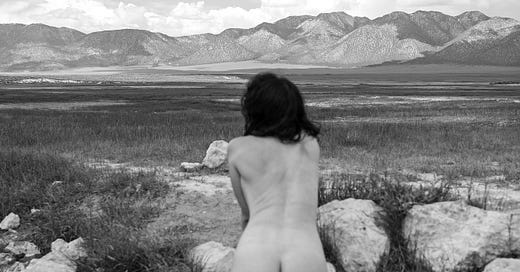Halloween. Dia de Los Muertos. Samhain. Scorpio season. Things got dark this past week. Rather than revel in costumes and candy, I dove in deep and thought about death.
As in my own. Those of you who know me have heard me say time and time again that I’ll be dead by the time I’m 65. I can’t speak to it any more than sensing it, and my instincts are usually right. Whether I live 20 more years or two more days, what Chani Nicolas said this week is the absolute truth: None of us are making it out of here alive. We certainly don’t act like that, though. We, being most Westerners who no longer practice rituals around caring for the deceased, run from death. We act like it will never knock at our door.
What if we spent more time contemplating our death? Would that allow us to be more conscious of our lives?
We move through days as if there is always another one to follow. We get wrapped up in the minutia of being busy, checking off to-do lists, and allowing capitalism to sink its teeth into our souls, rendering our worth as humans based on our productivity.
A snapshot of last week’s to-do lists:
Update the website.
Run payroll.
Track down payments from retailers.
Pay bills.
Review email flows and unsubscribes.
Crunch financials.
Print posters.
Create Facebook events.
Count hoodies.
Check mail.
Merchandise shop.
Schedule marketing emails.
Send podcast to editor.
Write blogs.
There’s nothing particularly interesting or sexy about this to-do list. I bet yours is similarly unimpressive and boring. When I think about what I would want written about me in my obituary or what I would I want placed on my ofrenda, I certainly wouldn’t want any of it to be included. I would want to be remembered for the principles that are the foundation of my to-do lists. The reasons why I agree to populate my folded pieces of scratch paper with what appears to be the minutia of daily life.
The principles I want to be remembered for:
Speak my truth with conviction, authenticity, and reverence.
Be kind (not nice).
Act with integrity and empathy.
Create my own reality from abundance and joy, not fear and regret.
Define my own terms of happiness and success.
Change what I can: My actions and words speak most loudly together.
Make the world a better place, particularly for those who need it the most.
Practice gratitude and cultivate “having enough.”
Do the hard things.
Be comfortable with being uncomfortable.
Endeavor to make others feel seen and heard.
When I apply these principles to my daily tasks, they become less obscure, overwhelming, and oppressive; my work and my responsibilities are in line with my values. That’s how I ensure that my to-do lists don’t define or control me.
The principles that I want to be remembered for have nothing to do with productivity or performance. They can’t be checked off as they are never complete. There are days and moments that I uphold them more than others, days and moments where I am reminded that they and I are a work in progress.
Interested in defining your principles and checking them against your daily life? Here’s what I considered in writing this post:
At what points do your principles and to-do lists speak to one another?
Where are they at odds with each other?
What “code of conduct” supports you in leading your best life?
What are the things about yourself that you want to be true?
What would you want written about you in your obituary?
What would you want placed on your ofrenda?
What is an ofrenda? The ofrenda stems from this idea of celebration of death in life. Every ofrenda includes the four elements: water, wind, earth and fire. Water is left in a pitcher so the spirits can quench their thirst. Papel picado, or traditional paper banners, represent the wind. Earth is represented by food, especially bread. Candles are often left in the form of a cross to represent the cardinal directions, so the spirits can find their way.
What is Samhain? Samhain (pronounced sow-wen) is a time of death and rebirth. Samhain is a turning point, an in between time and omen day, a sacred threshold between seasons.






